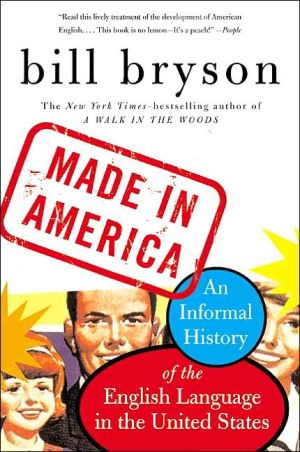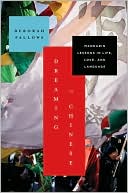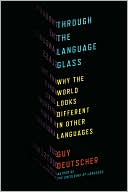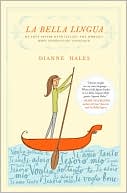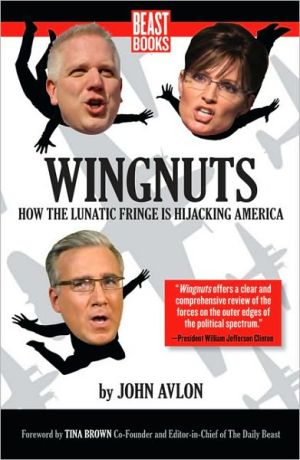Made in America: An Informal History of the English Language in the United States
Bill Bryson, who gave glorious voice to The Mother Tongue, now celebrates her magnificent offspring in the book that reveals once and for all how a dusty western hamlet with neither woods nor holly came to be known as Hollywood...and exactly why Mr. Yankee Doodle call his befeathered cap "Macaroni."\ \ \ This successor to the popular The Mother Tongue presents a brilliant, one-of-a-kind history not only of American words, but of America through words. Filled with...
Search in google:
Bill Bryson, who gave glorious voice to The Mother Tongue, now celebrates her magnificent offspring in the book that reveals once and for all how a dusty western hamlet with neither woods nor holly came to be known as Hollywood...and exactly why Mr. Yankee Doodle call his befeathered cap "Macaroni." Denver Post Plain fun ... a terrific book, likely to make its readerschuckle if not guffaw ... Bryson manages to demolish somecherished American myths ... If more high schools used thisas their history text, the course might be one of the morepopular ones in school.
The Mayflower\ and Before\ \ \ The image of the spiritual founding of America that generations of Americans have grown up with was created, oddly enough, by a poet of limited talents (to put it in the most magnanimous possible way) who lived two centuries after the event in a country three thousand miles away. Her name was Felicia Dorothea Hemans and she was not American but Welsh. Indeed, she had never been to America and appears to have known next to nothing about the country. It just happened that one day in 1826 her local grocer in Rhyllon, Wales, wrapped her purchases in a sheet of two-year-old newspaper from Boston, and her eye was caught by a small article about a founders' day celebration in Plymouth. It was very probably the first she had heard of the Mayflower or the Pilgrims. But inspired as only a mediocre poet can be, she dashed off a poem, "The Landing of the Pilgrim Fathers (in New England)," which begins\ \ The breaking waves dashed high\ On a stern and rock-bound coast\ And the woods, against a stormy sky,\ Tneir giant branches toss'd\ \ And the heavy night hung dark\ The hills and water o'er,\ Men a band of exiles moor'd their bark\ On the wild New England shore\ \ \ and carries on in a vigorously grandiloquent, indeterminately rhyming vein for a further eight stanzas. Although the poem was replete with errors—the Mayflower was not a bark, it was not night when they moored, Plymouth was not "where first they trod" but in fact marked their fourth visit ashore—it became an instant classic, and formed the essential image of the Mayflower landing thatmost Americans carry with them to this day.*\ The one thing the Pilgrims certainly didn't do was step ashore on Plymouth Rock. Quite apart from the consideration that it may have stood well above the high-water mark in 1620, no prudent mariner would try to bring a ship alongside a boulder in a heaving December sea when a sheltered inlet beckoned nearby. If the Pilgrims even noticed Plymouth Rock, there is no sign of it. No mention of the rock is found among any of the surviving documents and letters of the age, and indeed it doesn't make its first recorded appearance until 1715, almost a century later.1 Not until about the time Ms. Hemans wrote her swooping epic did Plymouth Rock become indelibly associated with the landing of the Pilgrims.\ Wherever they landed, we can assume that the 102 Pilgrims stepped from their storm-tossed little ship with unsteady legs and huge relief They had just spent nine and a half damp and perilous weeks at sea, crammed together on a creaking vessel small enough to be parked on a modern tennis court. The crew, with the customary graciousness of sailors, referred to them as puke stockings, on account of their apparently boundless ability to spatter the latter with the former, though in fact they had handled the experience reasonably well.' Only one passenger had died en route, and two had been added through births (one of whom ever after reveled in the exuberant name of Oceanus Hopkins).\ They called themselves Saints. Those members of the party who were not Saints they called Strangers. Pilgrims in reference to these early voyagers would not become common for another two hundred years. Even later was Founding Fathers. It isn't found until the twentieth century, in a speech by Warren G. Harding. Nor, strictly speaking, is it correct to call them Puritans. They were Separatists, so called because they had left the Church of England. Puritans were those who remained in the Anglican Church but wished to purify it. They wouldn't arrive in America for another decade, but when they did they would quickly eclipse, and eventually absorb, this little original colony.\ It would be difficult to imagine a group of people more ill-suited to a life in the wilderness. They packed as if they had misunderstood the purpose of the trip, They found room for sundials and candle snuffers, a drum, a trumpet, and a complete history of Turkey. One William Mullins packed 126 pairs of shoes and thirteen pairs of boots. Yet they failed to bring a single cow or horse, plow or fishing line. Among the professions represented on the Mayflower's manifest were two tailors, a printer, several merchants, a silk worker, a shopkeeper, and a hatter—occupations whose indispensability is not immediately evident when one thinks of surviving in a hostile environment.3 Their military commander, Miles Standish, Was so diminutive of stature that he was known to all as "Captain Shrimpe"4—hardly a figure to inspire awe in the savage natives, whom they confidently expected to encounter. With the uncertain exception of the little captain, probably none in the party had ever tried to bring down a wild animal. Hunting in seventeenth-century Europe was a sport reserved for the aristocracy. Even those who labeled themselves farmers generally had scant practical knowledge of husbandry, since farmer in the 1600s, and for some time afterward, signified an owner of land rather than one who worked it.\ They were, in short, dangerously unprepared for the rigors ahead, and they demonstrated their incompetence in the most dramatic possible way: by dying in droves. Six expired in the first two weeks, eight the next month, seventeen more in February, a further thirteen in March. By April, when the Mayflower set sail back to England,* just fifty-four people, nearly half of them children, were left to begin the long work of turning this tenuous toehold into a self-sustaining colony.5\ \ *The Mayflower, like Plymouth Rock, appears to have made no sentimental impression on the colonists. Not once in History of Plimouth Plantation, William Bradford's history of the colony, did he mention the ship by name. Just three years after its epochal crossing, the Mayflower was unceremoniously broken up and sold for salvage.
Introduction1The Mayflower and Before12Becoming Americans133A "Democratical Phrenzy": America in the Age of Revolution304Making a Nation485By the Dawn's Early Light: Forging a National Identity646We're in the Money: The Age of Invention827Names1008"Manifest Destiny": Taming the West1199The Melting Pot: Immigration in America13410When the Going Was Good: Travel in America15611What's Cooking?: Eating in America18012Democratizing Luxury: Shopping in America20613Manners and Other Matters21914The Hard Sell: Advertising in America23515The Movies24816The Pursuit of Pleasure: Sport and Play26317Of Bombs and Bunkum: Politics and War28718Sex and Other Distractions30419From Kitty Hawk to the Jumbo Jet32420Welcome to the Space Age: The 1950s and Beyond33421American English Today352Notes on Sources365Select Bibliography385Index395
\ USA TodayA treat ... filled with surprises ... a literate exploration ofwhy we use — or mangle-our native tongue.\ \ \ \ \ Denver PostPlain fun ... a terrific book, likely to make its readerschuckle if not guffaw ... Bryson manages to demolish somecherished American myths ... If more high schools used thisas their history text, the course might be one of the morepopular ones in school.\ \ \ Atlanta Journal and ConstitutionRomping through history and folk customs, Bill Bryson hascompiled a highly entertaining book about the growth ofAmerican English ... Enjoy it, learn from it, laugh at thefoibles of our peculiar tongue.\ \ \ \ \ PeopleRead this lively treatment of the development of American English . . . this book is no lemon—It's a peach!\ \ \ \ \ Wall Street JournalFrom slavery, immigration and Westward expansion to advertising, sex and shopping malls, he provides scads of fascinating, often little-known facts and anecdotes that, far from glutting his reader's appetites, should leave them hungry for more.\ \ \ \ \ Washington Post Book WorldDelightful . . . relentlessly, exuberantly informative . . . a potted history of the United States, presenting aspects of American life from cooking to swearing, from warring to shopping.\ \ \ \ \ USA TodayA treat ... filled with surprises ... a literate exploration ofwhy we use — or mangle-our native tongue.\ \ \ \ \ Denver PostPlain fun ... a terrific book, likely to make its readerschuckle if not guffaw ... Bryson manages to demolish somecherished American myths ... If more high schools used thisas their history text, the course might be one of the morepopular ones in school.\ \ \ \ \ Atlanta Journal and ConstitutionRomping through history and folk customs, Bill Bryson hascompiled a highly entertaining book about the growth ofAmerican English ... Enjoy it, learn from it, laugh at thefoibles of our peculiar tongue.\ \ \ \ \ Wall Street JournalFrom slavery, immigration and Westward expansion to advertising, sex and shopping malls, he provides scads of fascinating, often little-known facts and anecdotes that, far from glutting his reader's appetites, should leave them hungry for more.\ \ \ \ \ Washington Post Book WorldDelightful . . . relentlessly, exuberantly informative . . . a potted history of the United States, presenting aspects of American life from cooking to swearing, from warring to shopping.\ \ \ \ \ Publishers WeeklyBryson offers a playfully anecdotal account of the etymology of distinctive words and phrases that help to create a distinctly American English. Mar.\ \ \ \ \ Library JournalJournalist Bryson (Mother Tongue, Morrow, 1990) presents an engagingly written chronological history of the United States, focusing on popular culture and language. Along the way, he attempts to explain why American English is the way it is-why Americans paint the town red, talk turkey, keep a stiff upper lip, etc. He puts individual words and expressions in their social context as well as presenting well-researched and thoughtful discussions of our discovery and colonization of the New World, the writing of the Declaration of Independence and the Constitution, westward expansion, the age of invention and industrialization, modern politics and war, popular culture, and the current state of American English. This is a page-turning trip across linguistic America that takes many deliciously discursive side trips. For Bryson's wonderfully sane and reasoned discussion of the issues surrounding "politically correct" language alone, this book is a worthwhile read. Highly recommended for collections large and small.-Paul D'Alessandro, Portland P.L., Me.\ \ \ \ \ From Barnes & NobleThis informal history of American English explains why we "paint the town red," "talk turkey," "take a powder," and seek out "the real McCoy." Thousands of strange & wonderful observations from the American journalist living in England who authored The Mother Tongue.\ \
